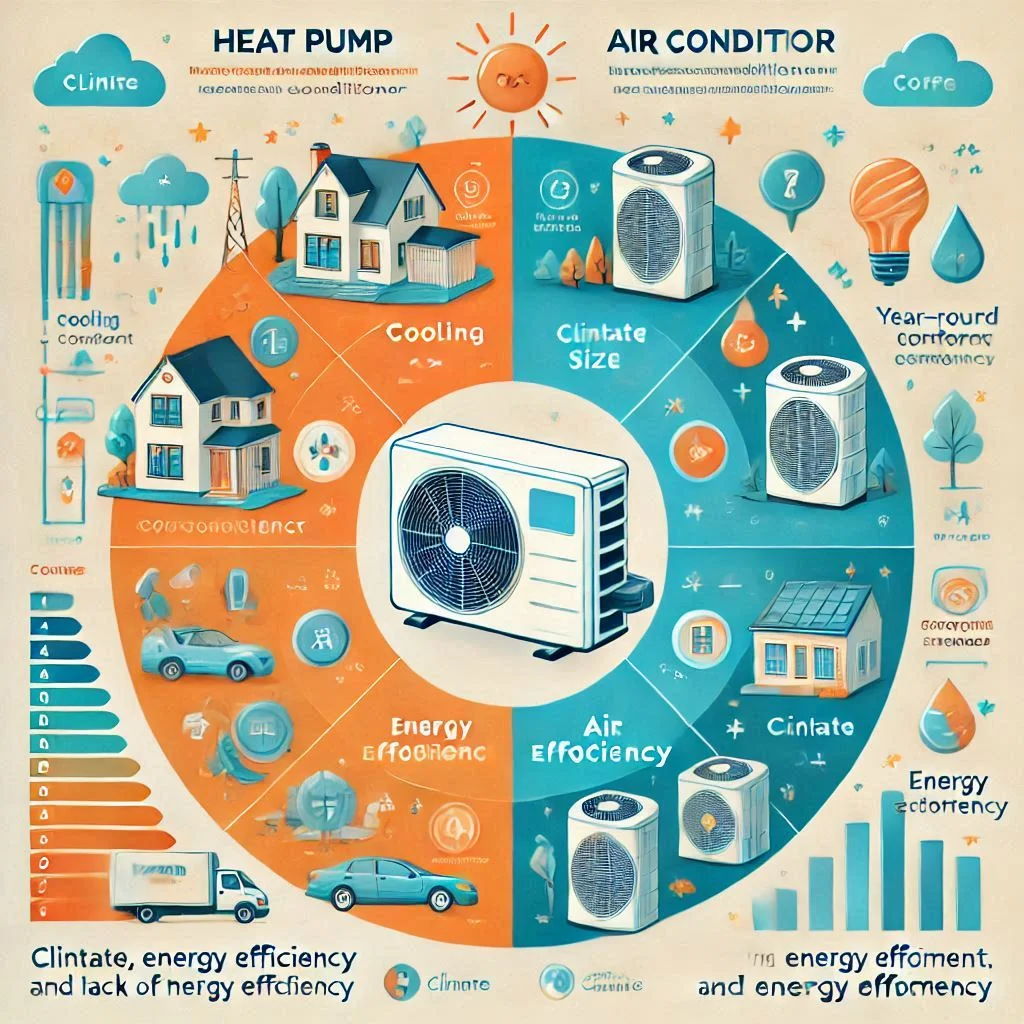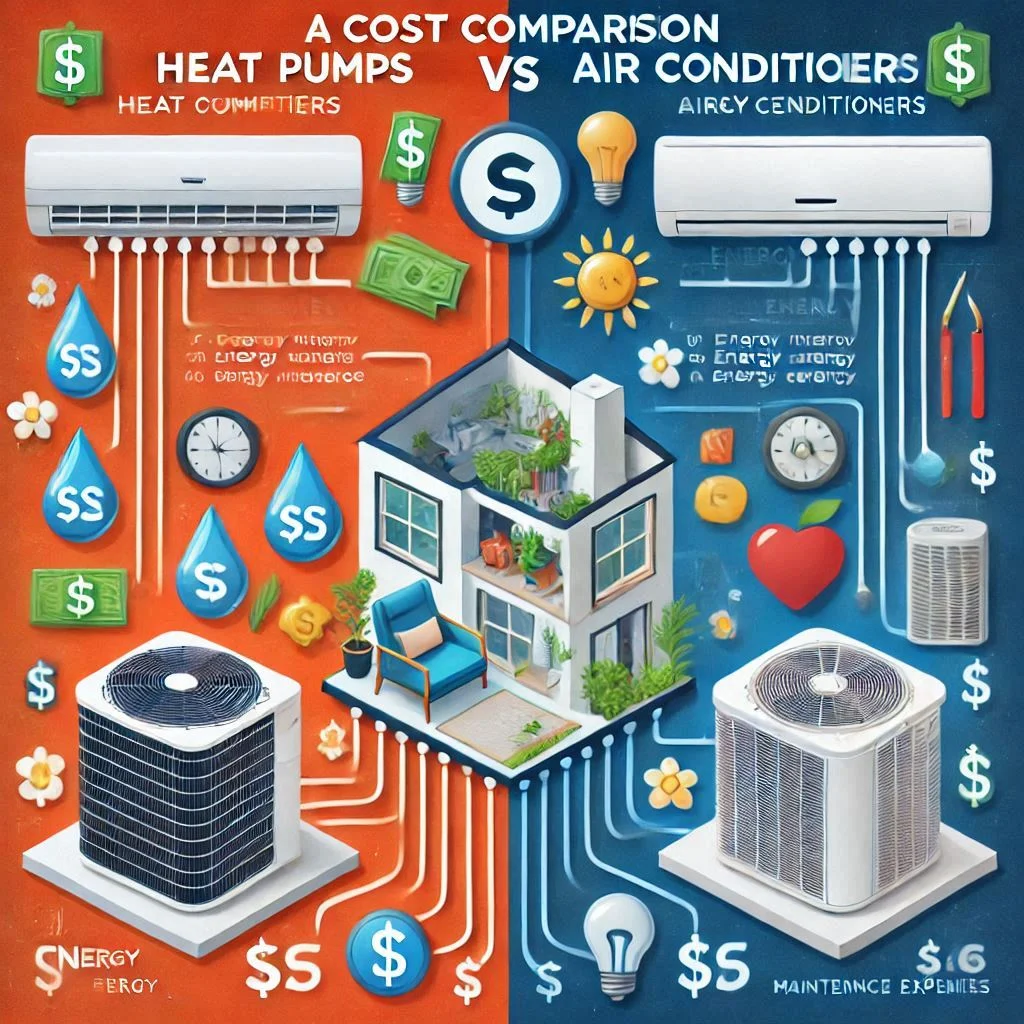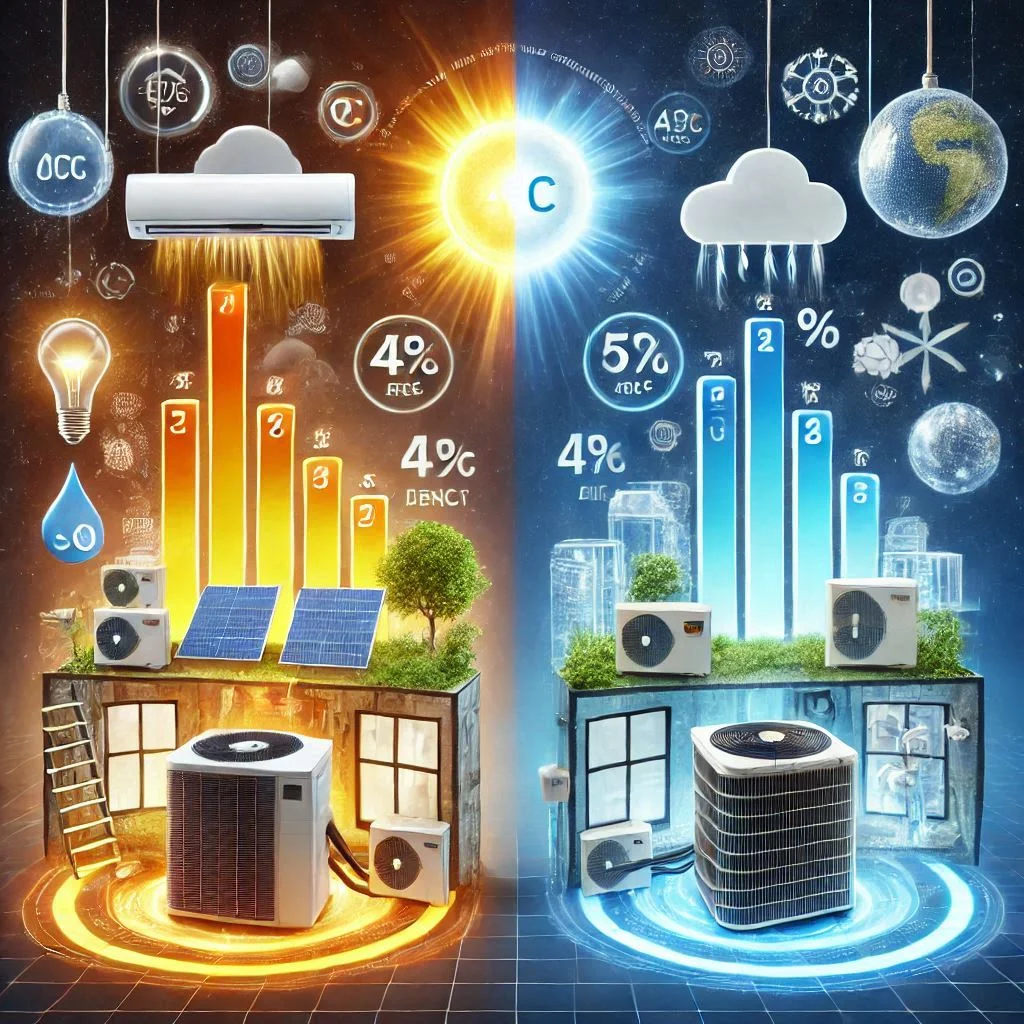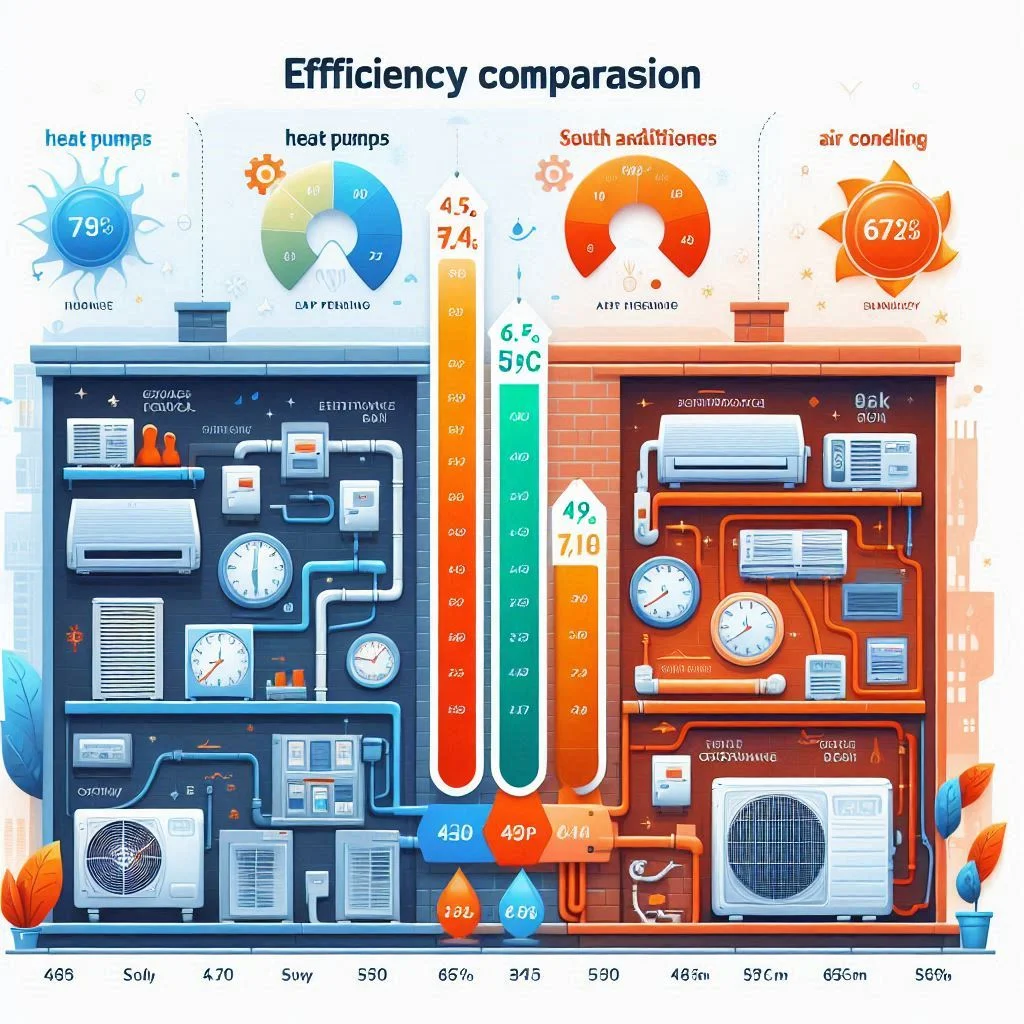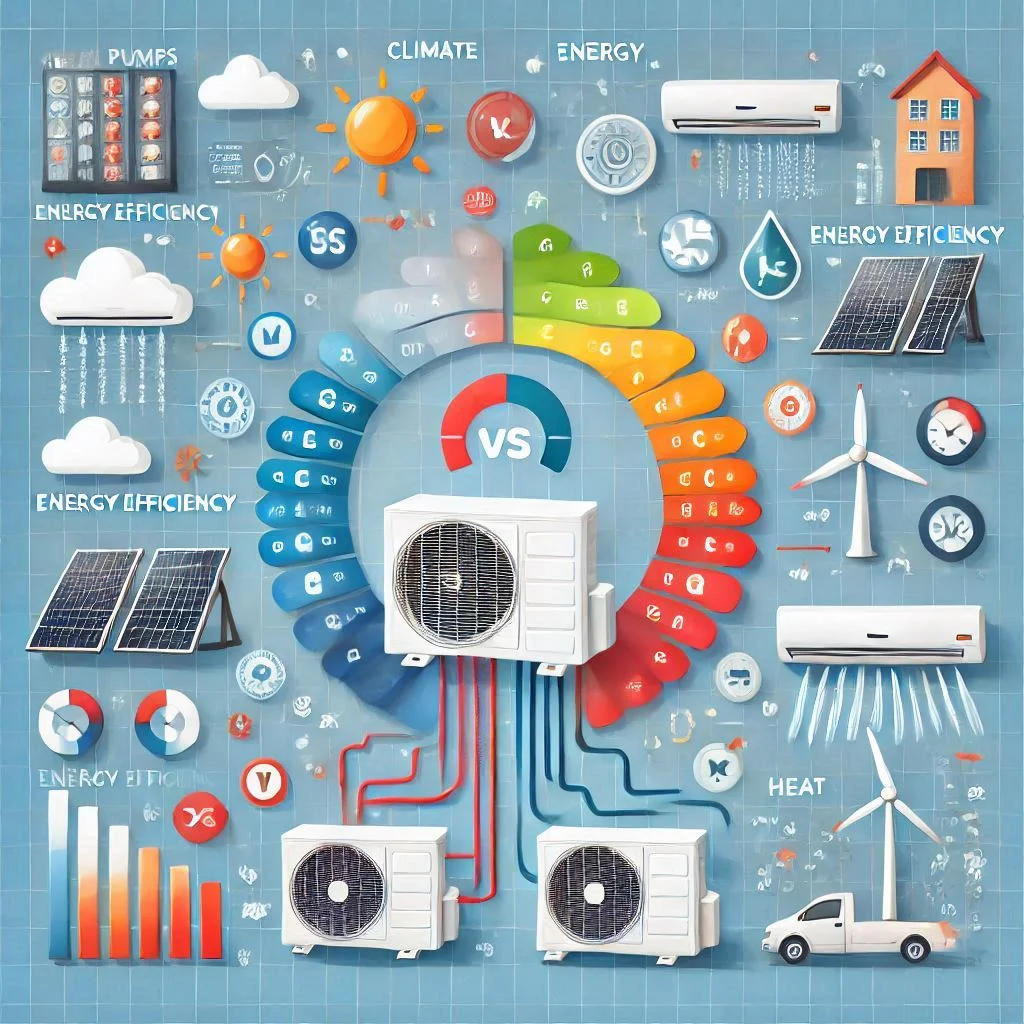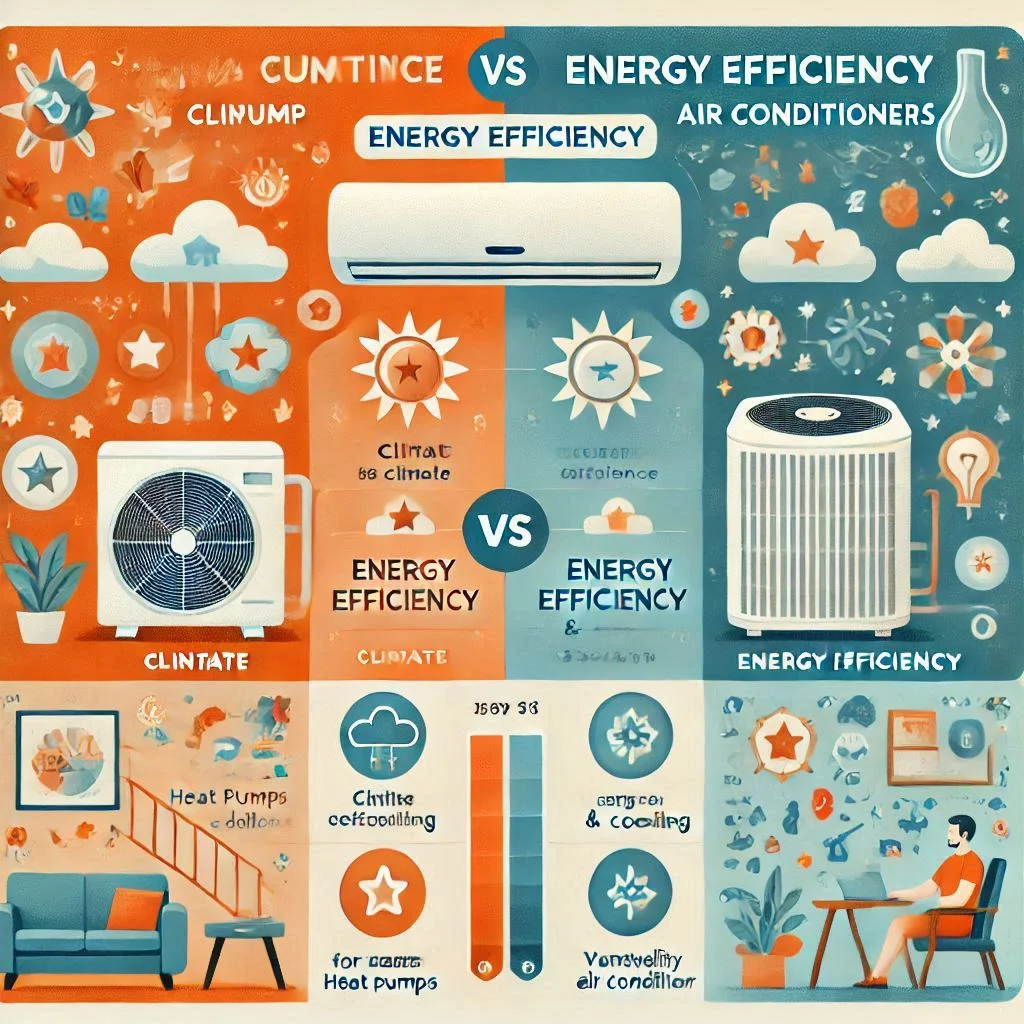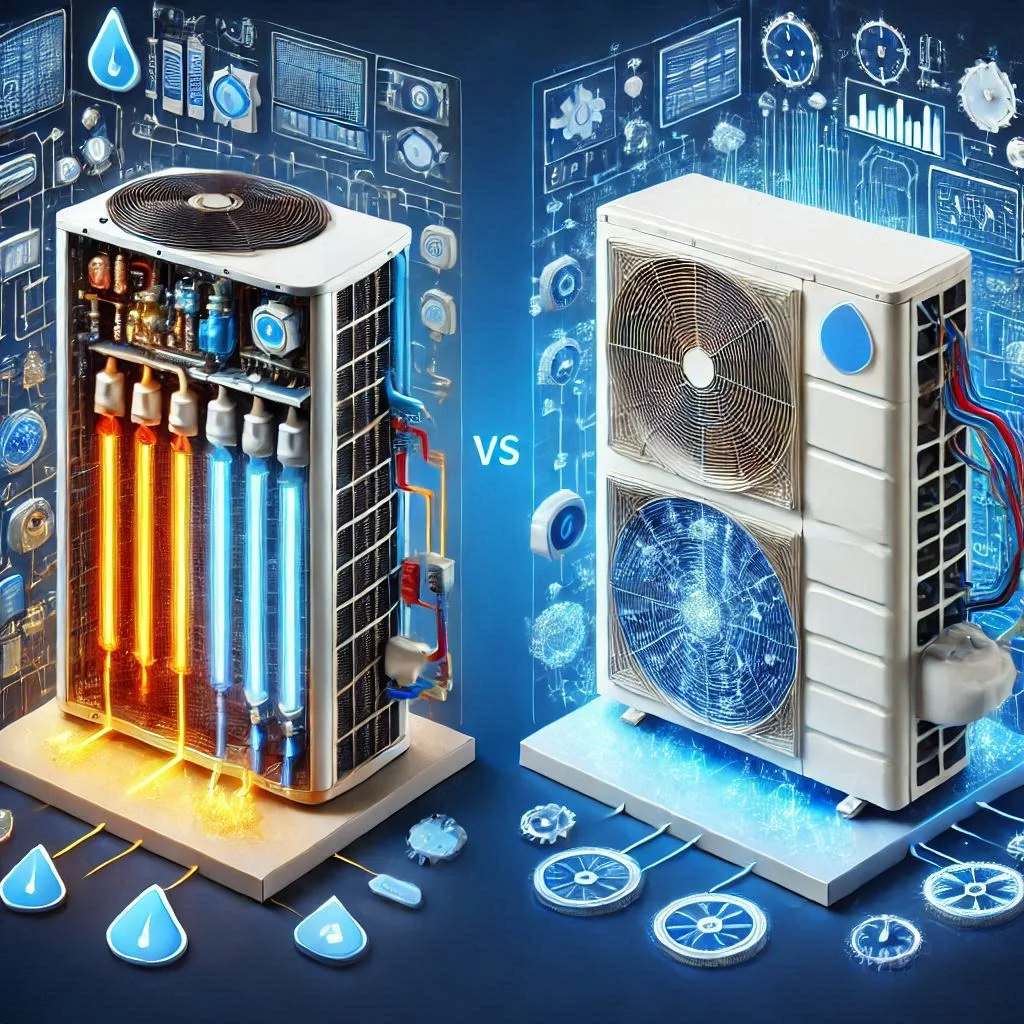What is a Heat Pump and What is Air Conditioning?
What is a Heat Pump?
A heat pump is a versatile HVAC system that can both heat and cool your home, offering year-round comfort with a single unit. Unlike traditional heating systems that generate heat, a heat pump works by transferring heat from one place to another. During the colder months, it extracts heat from the outside air (even in low temperatures) and transfers it into your home. Conversely, during the warmer months, it reverses this process by removing heat from the inside of your home and releasing it outdoors, functioning similarly to an air conditioner.
Heat pumps are energy-efficient systems because they don’t create heat; they simply move it from one place to another, using electricity to power the compressor and the fans. This makes them an eco-friendly option as they don’t rely on fossil fuels, which reduces carbon emissions and your utility bill. Modern heat pumps are equipped with advanced features like variable-speed compressors, allowing them to adjust their performance based on the demand, further increasing efficiency.
What is Air Conditioning?
Air conditioning (AC) refers to systems that provide cooling by removing heat and moisture from indoor air. It works by circulating air over refrigerant-filled coils that absorb the heat and release cooler air back into the room. The main purpose of air conditioning is to maintain a comfortable indoor temperature during hot weather, but it also reduces humidity, which can improve indoor air quality and prevent mold growth.
Unlike heat pumps, air conditioners are designed solely for cooling. They are most commonly used in climates where temperatures regularly rise above 85°F, and the demand for cooling is high throughout the year. Air conditioners use a refrigeration cycle to cool the air, which typically involves a condenser, evaporator, and compressor. Most modern air conditioners come with energy-saving features, but they tend to consume more energy in the long run compared to heat pumps, especially in colder climates where additional heating is necessary.
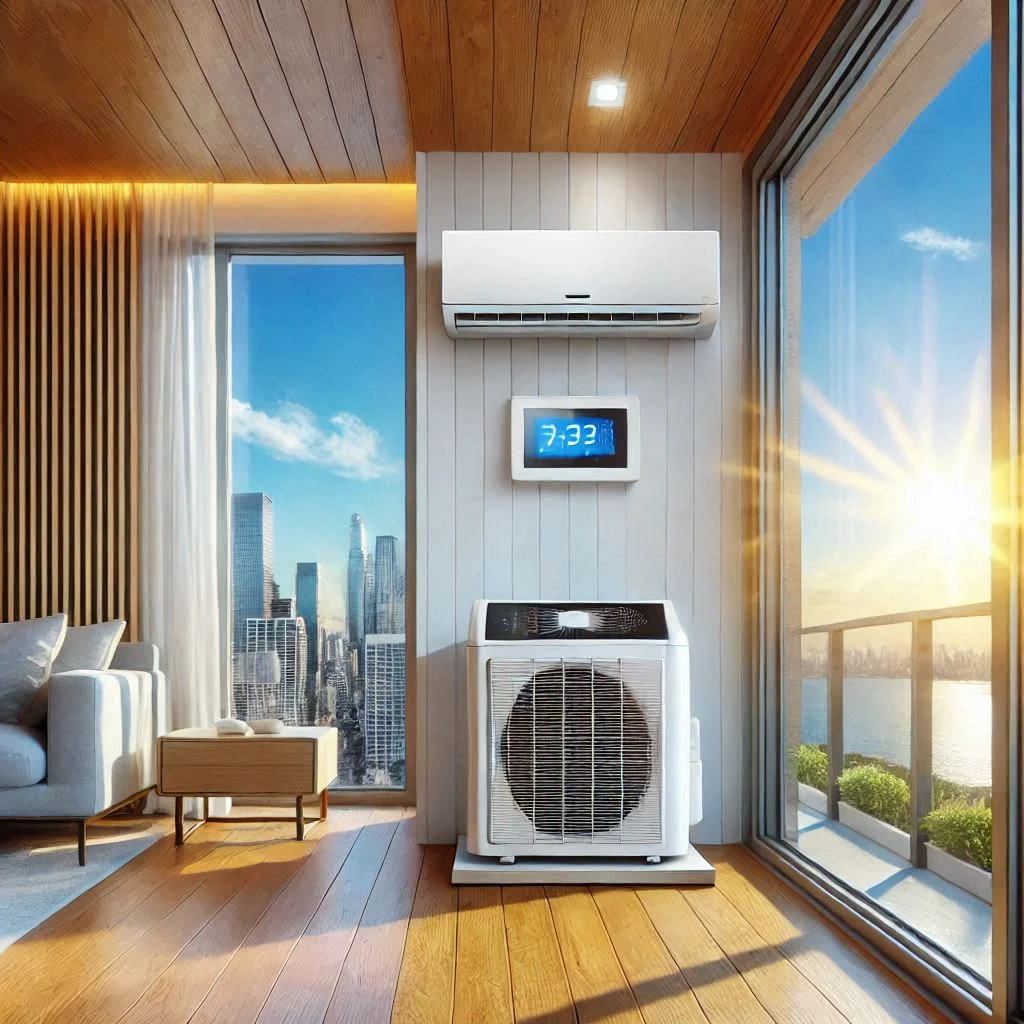
How Heat Pumps and Air Conditioners Work
How Does a Heat Pump Work?
A heat pump operates using the principles of thermodynamics, utilizing a refrigeration cycle to transfer heat. It consists of several key components: the evaporator, condenser, expansion valve, and compressor. The cycle begins when the compressor pumps refrigerant through the system. As the refrigerant circulates, it absorbs heat from the air (even in cool temperatures) and carries it through the system.
- Winter Operation: In colder weather, the heat pump extracts heat from the outside air, even though it may feel cold outside. The evaporator coil, located outdoors, absorbs heat from the air. The refrigerant inside the evaporator coil changes from a low-pressure gas into a high-pressure gas. This gas is compressed and sent to the indoor coil (condenser), where it releases the absorbed heat into your home. As the refrigerant cools, it becomes a liquid again, and the cycle continues.
- Summer Operation: During warmer months, the heat pump reverses the process. The indoor coil acts as the evaporator, absorbing heat from the indoor air and sending it outside through the outdoor coil, which now serves as the condenser. This process effectively cools your home.
One of the key benefits of a heat pump is that it can efficiently provide both heating and cooling with one system, making it a versatile choice for year-round comfort. Additionally, because it doesn’t generate heat but rather moves it, heat pumps tend to use less energy compared to traditional heating systems like furnaces.
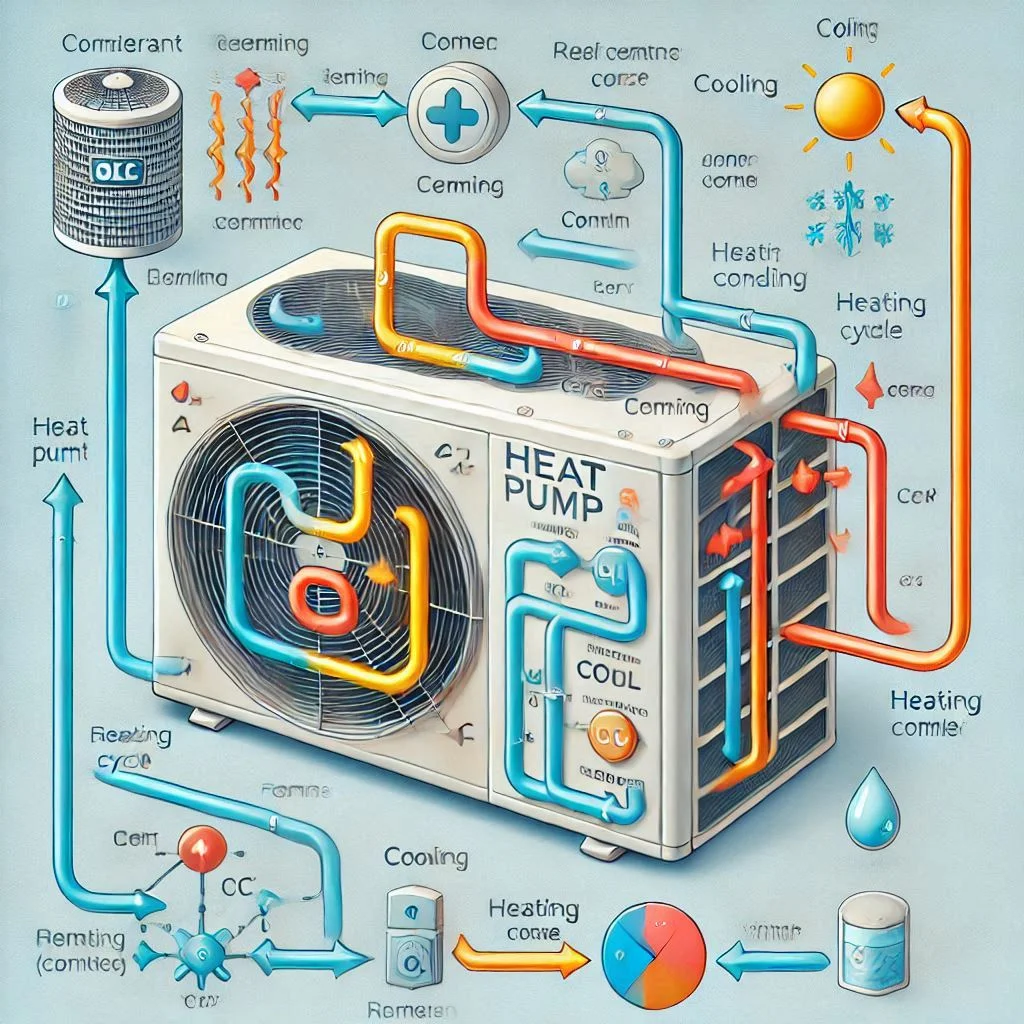
How Does an Air Conditioner Work?
An air conditioner (AC) operates on a similar principle to the heat pump in that it uses a refrigeration cycle to cool indoor air. However, unlike the heat pump, an air conditioner is designed only for cooling, and it doesn’t have the ability to reverse the cycle for heating.
The AC system also contains the four main components: the evaporator, condenser, expansion valve, and compressor. The process begins when warm air from inside your home is blown over the evaporator coil, which is filled with refrigerant. The refrigerant absorbs the heat, changing from a low-pressure gas into a high-pressure gas. The refrigerant is then pumped into the compressor, which increases the pressure even more and moves it to the condenser coil located outside.
- Cooling Process: As the refrigerant moves through the condenser coil, it releases the heat it picked up from inside, causing it to cool down and return to a liquid state. This cooled refrigerant is sent back into the evaporator coil to absorb more heat, continuing the cycle. The cool air that is left behind is blown back into your home, lowering the indoor temperature.
While the function of an air conditioner is similar to a heat pump, its purpose is strictly for cooling. Air conditioners are typically more common in warmer climates where heating is not necessary, or where a separate heating system (like a furnace) is used.
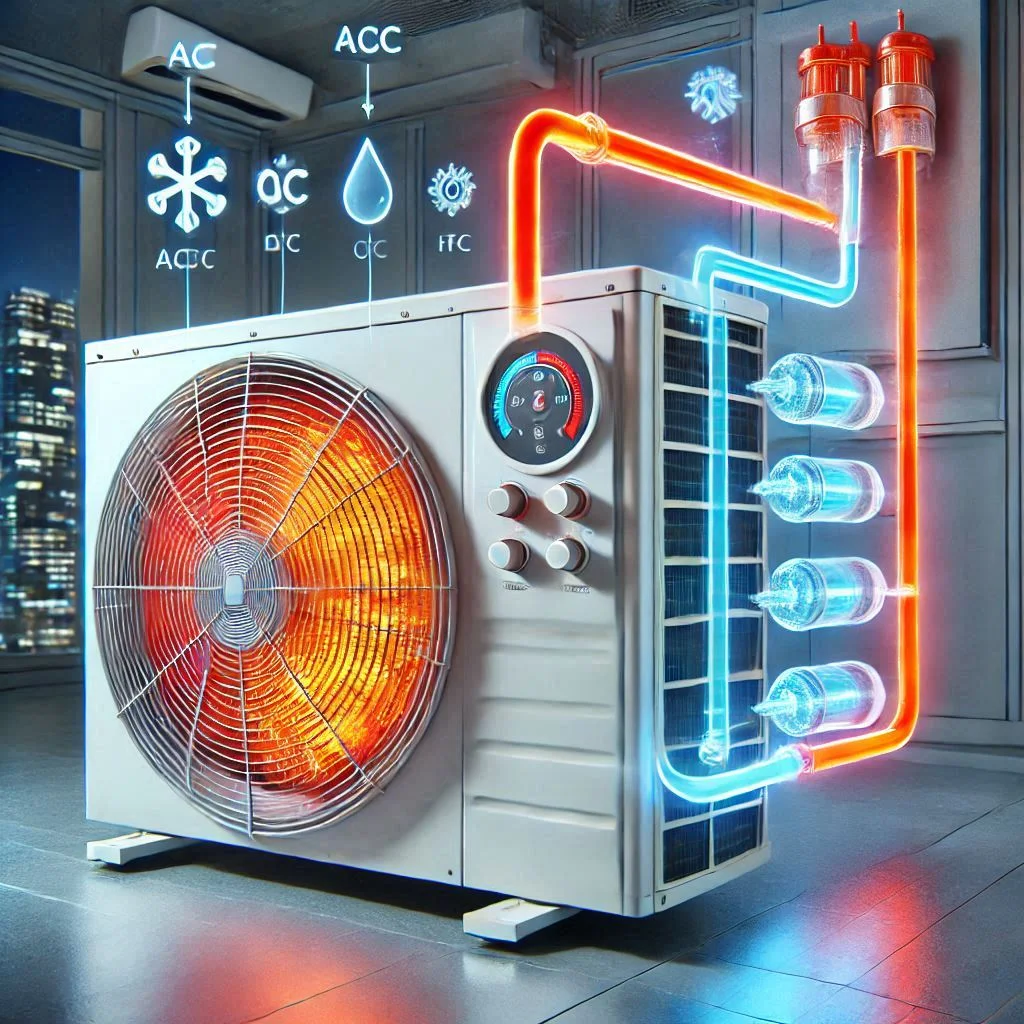
Heat Pump vs Air Conditioner: Key Differences
Differences Between Heat Pumps and Air Conditioners
While both heat pumps and air conditioners rely on a refrigeration cycle to cool indoor air, the primary difference lies in their versatility and function. Here’s how they differ:
- Heating Function: A heat pump is a two-in-one system that can both heat and cool your home. During colder months, it extracts heat from the outside air and transfers it indoors. On the other hand, air conditioners are designed solely for cooling purposes. They cannot heat your home and must be paired with a separate heating system, like a furnace, to provide warmth during colder months.
- Year-Round Use: Heat pumps are ideal for moderate climates where both heating and cooling are required year-round. They provide an energy-efficient solution for homes needing both functions. Air conditioners, however, are commonly used in hot climates or areas where the need for heating is minimal. Air conditioners do not have a heating function and are typically used in combination with another heating system.
- Energy Source: A heat pump uses electricity to transfer heat from one place to another, making it an energy-efficient option. Air conditioners also use electricity, but they consume more energy in comparison, particularly if an additional heating system is required during the winter months.
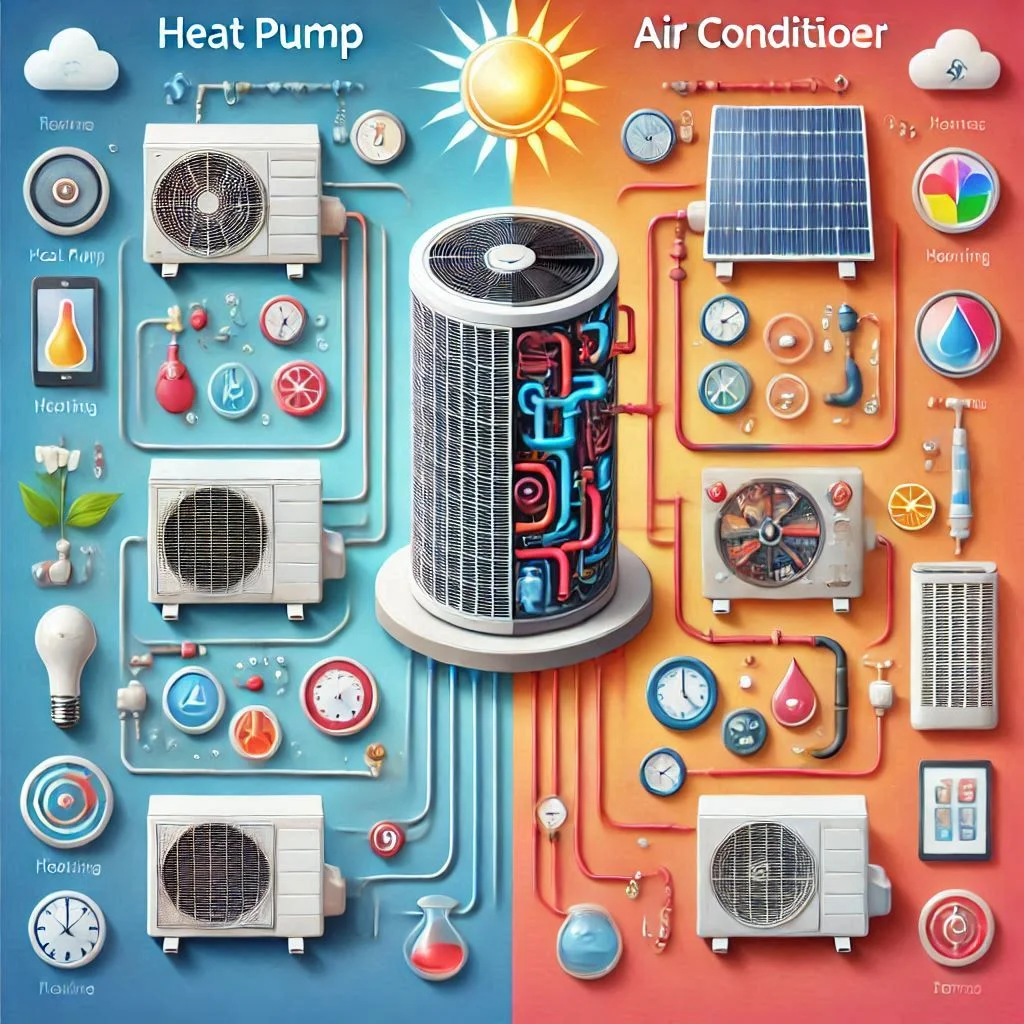
Heat Pump vs Air Conditioner Energy Efficiency
When comparing energy efficiency, a heat pump generally comes out ahead because it is capable of both heating and cooling, and it moves heat rather than generating it.
- Heat Pump Efficiency: Heat pumps are highly energy-efficient, typically providing 3 to 4 units of heat for every unit of energy consumed. This efficiency comes from the system’s ability to transfer heat instead of creating it. Even in cooler temperatures, a heat pump can extract heat from the air outside and transfer it indoors, using less energy than traditional heating methods like furnaces or baseboard heaters.
- Air Conditioner Efficiency: Air conditioners also have good energy efficiency, especially modern systems with SEER (Seasonal Energy Efficiency Ratio) ratings of 14 or higher. However, when compared to heat pumps, air conditioners are less efficient in climates where heating is necessary because they do not offer a heating function, necessitating the installation of additional heating systems.
Energy Efficiency Advantage: For regions with mild winters, a heat pump offers the most efficient option because it handles both heating and cooling, reducing the need for separate systems. However, in areas with harsh winters, a heat pump may need a backup heating system, making an air conditioner with a separate heating unit a better choice.
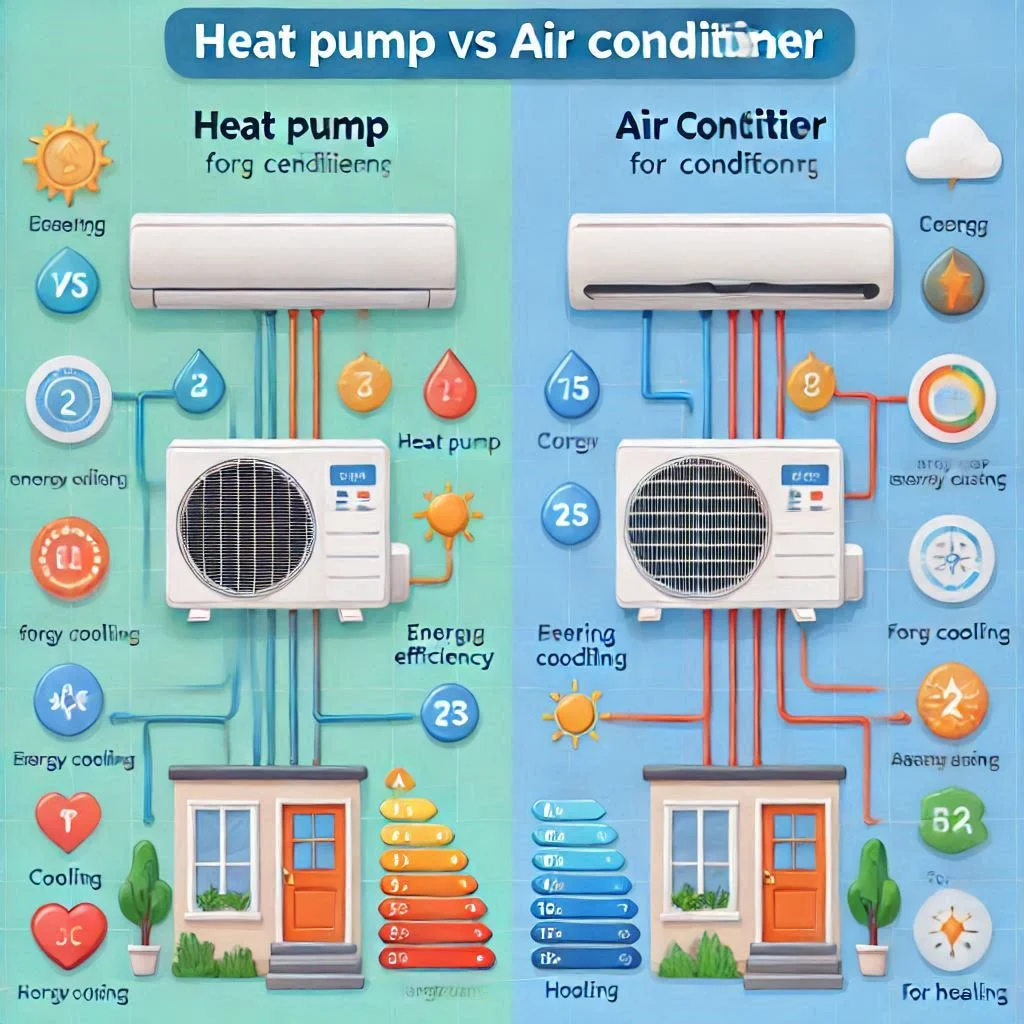
Heat Pump vs Air Conditioner Cost Comparison
Initial Installation Costs:
- The initial cost for a heat pump is typically higher than an air conditioner because it serves both heating and cooling functions. The average installation cost for a heat pump can range from $3,000 to $7,000 depending on the type and size of the unit. The need for extra components, such as dual-speed fans and a reversing valve, adds to the cost.
- Air conditioners, on the other hand, have a lower installation cost, typically ranging from $2,500 to $5,000. This is because air conditioners are generally simpler systems designed only for cooling.
Operational Costs:
- Heat Pumps are more cost-effective to run in climates where both heating and cooling are necessary. The energy consumption is lower since they are efficient at transferring heat, and you don’t need to install a separate heating system.
- Air conditioners have lower upfront costs but require additional heating systems in colder months, which can lead to higher overall operational costs. The cost to run an air conditioner depends on your climate and how often it is used, but generally, air conditioners consume more energy in cooling-only environments.
Long-Term Savings:
In the long term, heat pumps can provide more value because they combine the functions of an air conditioner and a heater, eliminating the need for separate systems. However, if you live in a region where the winters are extreme, the cost of maintaining a heat pump may rise due to the need for supplementary heating.
Maintenance Costs:
The maintenance costs for both systems are fairly similar. Both require routine servicing, including checking refrigerant levels, cleaning coils, and ensuring the system is running efficiently. Heat pumps may require additional attention during the winter months when they’re also functioning as heaters.
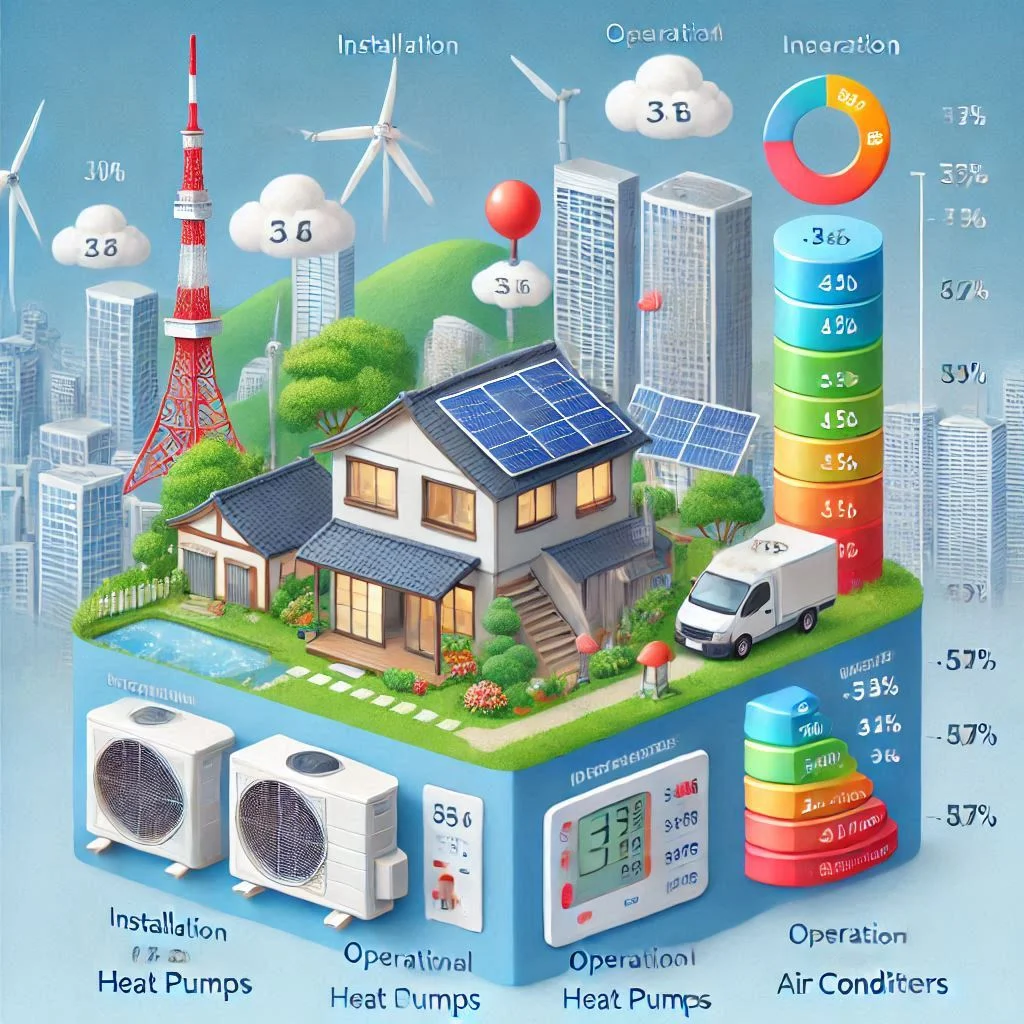
Benefits and Drawbacks of Heat Pumps vs Air Conditioners
Heat Pump Benefits and Drawbacks
Heat Pump Benefits
Heat pumps offer a variety of benefits, making them an attractive option for both heating and cooling needs:
- Energy Efficiency:
Heat pumps are known for their high energy efficiency because they transfer heat rather than generate it. In fact, a heat pump can provide 3 to 4 units of heat for every unit of electricity it consumes, which is far more efficient than traditional heating systems like furnaces. This makes them an environmentally friendly option for homeowners looking to reduce their carbon footprint. - Year-Round Comfort:
Unlike air conditioners, which only cool the air, heat pumps offer both heating and cooling capabilities. This makes them a versatile solution for climates with both warm and cold seasons. With a heat pump, you only need one system for year-round comfort, eliminating the need for separate heating and cooling units. - Low Operating Costs:
Since heat pumps use electricity to transfer heat, they tend to have lower operating costs than traditional heating systems like electric or gas furnaces. Over time, homeowners can save on energy bills, especially in moderate climates. - Environmentally Friendly:
Heat pumps are more eco-friendly because they consume less energy compared to systems that rely on burning fossil fuels to generate heat. For those conscious of environmental impact, heat pumps provide an excellent alternative to gas-powered heating systems. - Quiet Operation:
Modern heat pumps are designed to operate quietly, making them ideal for homes where noise may be a concern, such as bedrooms or quiet offices.
Heat Pump Drawbacks
- Higher Initial Costs:
The upfront cost of a heat pump system can be higher compared to traditional air conditioners or heating systems, typically ranging from $3,000 to $7,000 depending on the type and installation requirements. Although they offer long-term savings, the initial investment might be a concern for some homeowners. - Reduced Efficiency in Extreme Cold:
While heat pumps can function in cold weather, they are not as efficient in extreme temperatures. In areas where winters are severe, the system may struggle to extract enough heat from the air, requiring a backup heating system to provide sufficient warmth. - Frequent Maintenance Needs:
Because heat pumps are used year-round for both heating and cooling, they often require more frequent maintenance than air conditioners. Keeping the system in optimal condition may mean additional costs for servicing and repairs. - Air Distribution:
In very large homes or buildings, the heat pump’s air distribution may not be as efficient as a dedicated heating system like a furnace, especially if the home has a complex layout with poor insulation.
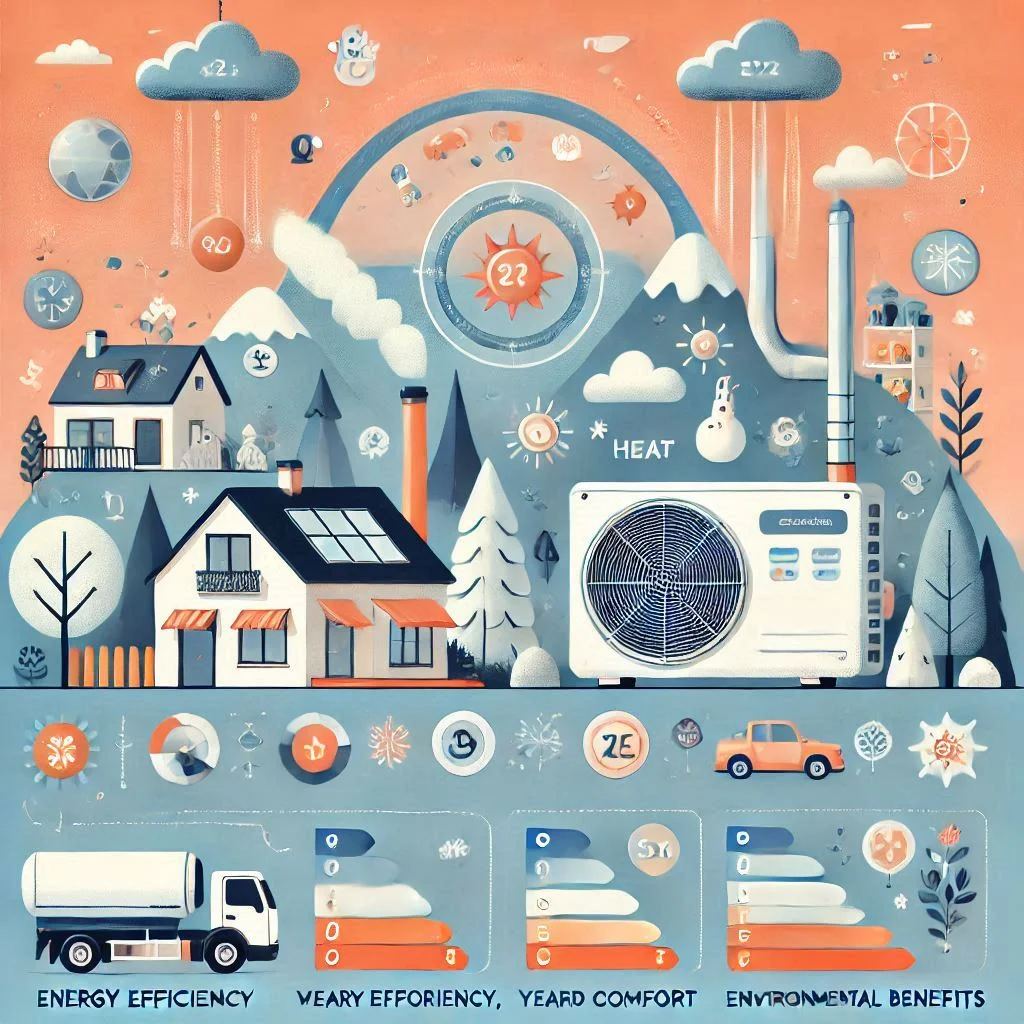
Air Conditioner Benefits and Drawbacks
Air Conditioner Benefits
Air conditioners are widely used for cooling purposes, and they offer the following advantages:
- Effective Cooling:
Air conditioners excel at cooling your home, providing quick and consistent temperature regulation. They are designed for maximum cooling efficiency, making them ideal for hot climates where air conditioning is a must. - Lower Initial Installation Costs:
Air conditioners generally have lower initial installation costs than heat pumps, making them more affordable upfront. Depending on the size and brand, installation can cost between $2,500 and $5,000, making them accessible for many homeowners. - Long Lifespan:
Air conditioners are typically built for long-term use and can last anywhere from 10 to 15 years, depending on the model and how well the unit is maintained. Regular servicing can ensure an extended lifespan for the system. - Low Maintenance:
Air conditioners generally require less maintenance than heat pumps. Their sole purpose is cooling, so there is less wear and tear on the system. Annual servicing usually involves cleaning coils, changing filters, and checking refrigerant levels. - Great for Hot Climates:
If you live in an area where winters are mild and the main concern is cooling, air conditioners are perfect. They offer an efficient and reliable cooling solution with fewer concerns about heating.
Air Conditioner Drawbacks
- No Heating Function:
The most obvious limitation of an air conditioner is its inability to provide heat. In climates that experience cold temperatures, an air conditioner will require a separate heating system, which can add to both installation and maintenance costs. - Higher Operating Costs in Extreme Heat:
Air conditioners tend to use more energy when they run continuously during extremely hot weather, especially in climates with prolonged heat waves. This can lead to higher monthly electricity bills, making air conditioners less cost-effective in areas with constant high temperatures. - Environmental Impact:
Air conditioners contribute to higher energy consumption, which can increase the carbon footprint. Additionally, older air conditioners may use refrigerants that are harmful to the environment. It’s important to choose a model with an eco-friendly refrigerant, such as R-410A. - Limited Versatility:
Since air conditioners are solely designed for cooling, they lack the versatility that heat pumps offer. If you need both heating and cooling, you’ll have to invest in two separate systems.
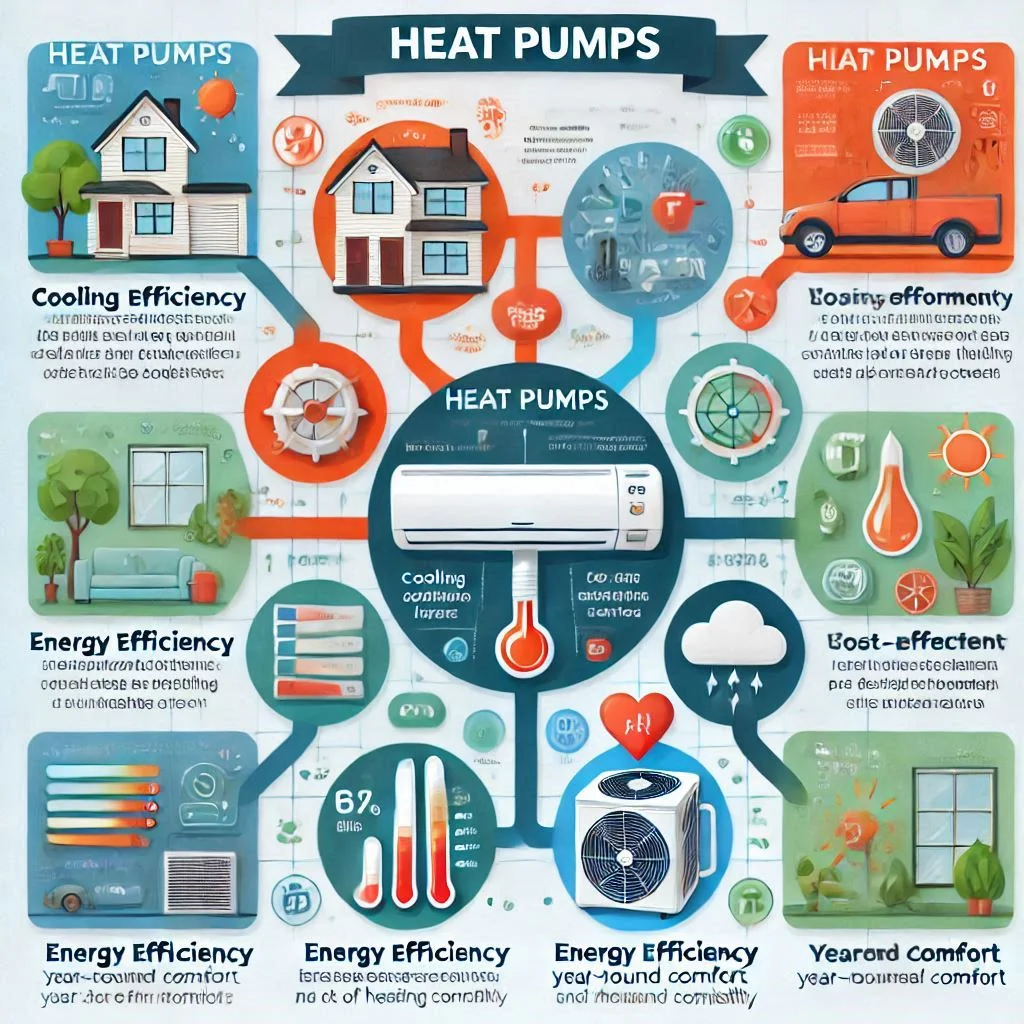
Heat Pump vs Air Conditioner: Which System is Right for You?
Choosing between a heat pump and an air conditioner depends on various factors, including your climate, budget, and long-term energy goals. Let’s break down the key elements to help you decide which system best suits your needs.
AC vs Heat Pump: Which System is Best for Your Home?
When deciding between a heat pump and an air conditioner, consider the following factors:
- Climate Considerations:
- Air Conditioners: Best for areas with hot summers but mild winters. They only cool the air, so if you live in a region with minimal winter cold, an air conditioner will be the most efficient choice.
- Heat Pumps: Ideal for areas with moderate climates that experience both warm and cold seasons. Heat pumps can heat your home in the winter and cool it in the summer, making them a year-round solution. They’re perfect for areas where winters aren’t excessively cold but still require heating.
- Home Size:
- Air Conditioners: Air conditioners tend to work well for smaller homes or properties that only need cooling. For large homes or homes with multiple levels, you may need a larger or multi-zone system to achieve even cooling.
- Heat Pumps: Suitable for a variety of home sizes, especially if your home requires both heating and cooling. Multi-zone heat pumps can also provide customized comfort in different areas of your home.
- Energy Efficiency:
- Air Conditioners: While modern air conditioners are efficient, they are primarily designed for cooling and may require additional heating systems during colder months. This results in potentially higher overall energy consumption.
- Heat Pumps: Heat pumps are typically more energy-efficient as they can both heat and cool your home, making them a versatile option. During mild winters, they are more efficient than using separate systems for heating and cooling.
Heat Pump vs AC: Cost Comparison
The cost comparison between heat pumps and air conditioners can vary significantly, both in terms of installation costs and long-term operational costs.
- Initial Installation Costs:
- Air Conditioners: Generally have lower upfront costs, with installation prices ranging from $2,500 to $5,000 depending on the model and your home’s size. The cost is typically lower than heat pumps because they only provide cooling.
- Heat Pumps: The upfront cost for a heat pump is usually higher than for an air conditioner, typically ranging from $3,000 to $7,000. However, this cost includes both heating and cooling functions, making it a two-in-one solution.
- Energy Costs and Savings:
- Air Conditioners: Air conditioners can be expensive to operate during the summer months, particularly if you live in an area with extreme heat. Their operation relies heavily on electricity, which can lead to higher energy bills.
- Heat Pumps: Heat pumps are more energy-efficient because they transfer heat rather than generating it. Although they may cost more to install, the long-term energy savings from using just one system for heating and cooling can be substantial.
- Maintenance Costs:
- Air Conditioners: Regular maintenance for an air conditioner is relatively inexpensive and involves changing filters, cleaning coils, and checking refrigerant levels. This can cost between $150 to $300 per year.
- Heat Pumps: Since heat pumps are used year-round, they may require slightly more frequent maintenance than air conditioners, but the costs are not significantly higher. Annual maintenance costs are typically in the range of $200 to $350.
Are Heat Pumps More Efficient Than Air Conditioners?
When it comes to efficiency, heat pumps typically outperform air conditioners in certain situations. Here’s why:
- Energy Use: Heat pumps are known for their energy efficiency because they transfer heat rather than creating it. This allows them to use less electricity to maintain a comfortable temperature in your home. For instance, a heat pump can deliver up to 4 units of heating or cooling for every unit of energy it consumes, compared to air conditioners that only provide cooling.
- Heating Efficiency: In colder months, a heat pump extracts heat from the outdoor air and transfers it inside, making it a more efficient heating option than electric or gas furnaces. Air conditioners, on the other hand, have no heating capabilities and require separate heating systems.
- Cooling Efficiency: While air conditioners are very efficient at cooling, heat pumps offer comparable or even superior cooling performance in moderate climates due to their dual functionality.
In summary, heat pumps are often more efficient than air conditioners, especially in climates with both hot and cold weather. They provide an all-in-one solution that saves on both energy and maintenance costs.
Do Heat Pumps Last Longer Than AC Units?
- Heat Pumps: Heat pumps typically last around 15 to 20 years with proper maintenance, which is longer than most air conditioners. This longer lifespan is due to the fact that heat pumps handle both heating and cooling functions, giving them a broader usage range. However, as with any system, maintenance is crucial to ensuring longevity.
- Air Conditioners: Air conditioners generally last between 10 to 15 years, depending on the model and usage. Regular maintenance, such as cleaning coils and replacing filters, can extend their life. Since air conditioners are used primarily in the summer, they experience less wear and tear compared to heat pumps, which operate year-round.
Frequently Asked Questions About Heat Pumps and Air Conditioners
Understanding the differences and functionalities of heat pumps and air conditioners can sometimes be confusing. Below, we’ve answered some of the most common questions about these systems to help guide your decision-making process.
Is it Better to Have a Heat Pump or Air Conditioner?
Choosing between a heat pump and an air conditioner depends on several factors including your climate, energy efficiency goals, and budget. Here’s how to decide which one is better for your needs:
- Climate Considerations:
- Air Conditioners: Ideal for regions with hot summers and mild winters. If you live in a climate where the temperature doesn’t drop too low during winter, an air conditioner may be sufficient. You will still need a separate heating system in colder months.
- Heat Pumps: Best for areas that experience both hot summers and cold winters. A heat pump can efficiently both heat and cool your home, making it a more versatile, all-in-one solution. If you live in a region with moderate seasonal temperature changes, a heat pump may be the better option.
- Energy Efficiency:
- Air Conditioners: Though air conditioners are efficient for cooling, they do not provide heating, meaning you’ll need a separate system for winter months.
- Heat Pumps: Heat pumps are often more energy-efficient because they only require electricity to operate. They provide both cooling in the summer and heating in the winter, thus eliminating the need for a separate heating system.
Can a Heat Pump Replace an Air Conditioner?
Yes, a heat pump can replace an air conditioner, and in fact, it provides added benefits. Here’s how:
- Dual Functionality: Unlike traditional air conditioners, which only provide cooling, a heat pump works as both a cooling and heating system. This dual functionality makes it an all-in-one solution, especially beneficial for homes that need both temperature control during different seasons.
- Energy Efficiency: Since heat pumps work year-round, they can potentially save on installation and energy costs, eliminating the need for separate air conditioning and heating units. This makes a heat pump a cost-effective alternative to having two separate systems.
- Climate Considerations: Heat pumps are effective in moderate climates where winter temperatures don’t fall too low. If you live in an area with extreme cold winters, you may still need a backup heating system for efficient warmth.
Do You Really Save Money with a Heat Pump?
The potential savings offered by a heat pump largely depend on several factors, including your local climate, energy rates, and how well your existing heating and cooling systems are working. Here’s how a heat pump could save you money:
- Lower Energy Costs: Heat pumps are typically more energy-efficient than traditional systems because they use electricity to move heat rather than generate it. As a result, you could save a significant amount on your energy bills compared to using separate air conditioners and heaters.
- Maintenance Savings: Since heat pumps serve both as a heating and cooling system, they can help reduce the costs associated with maintaining separate HVAC systems. This can lead to lower maintenance and repair costs over time.
- Tax Credits and Incentives: Depending on your location, installing a heat pump may qualify you for government rebates or tax credits. These incentives can help offset the higher upfront cost of purchasing and installing a heat pump.
Is a Heat Pump the Same as an AC?
While a heat pump and an air conditioner both cool the air in your home, they are not the same. The main differences between the two include:
- Functionality: An air conditioner is designed to only cool the air inside your home, while a heat pump can cool in the summer and heat in the winter. This makes the heat pump a more versatile and energy-efficient system.
- Heating Capabilities: Unlike an air conditioner, which requires a separate heating system in the winter, a heat pump can provide both cooling and heating. Heat pumps can extract heat from the outside air and transfer it into your home during the winter months.
- Efficiency: Heat pumps can operate more efficiently than traditional air conditioners, particularly in regions with moderate climate temperatures. Their ability to heat and cool reduces the need for separate HVAC systems.
Does a Heat Pump Cool Like an Air Conditioner?
Yes, a heat pump can cool like an air conditioner. In fact, they both operate on similar principles:
- Refrigerant Cycle: Like an air conditioner, a heat pump uses refrigerant to absorb heat from inside the home and expel it outside. This process cools the indoor air, making it comfortable during the summer months.
- Cooling Efficiency: In moderate climates, heat pumps can provide cooling that is similar to an air conditioner in terms of performance and efficiency. However, in extremely hot climates, an air conditioner may provide more consistent cooling due to its specialized design.
- Temperature Control: During hot weather, the heat pump operates similarly to an air conditioner, continuously drawing heat from your home and releasing it outside. However, in colder months, the cycle reverses, and the heat pump absorbs heat from the outside air and transfers it inside to warm the home.
Conclusion:
Choosing between a heat pump and an air conditioner ultimately comes down to your specific needs, climate, and budget. While both systems are highly effective for cooling your home, a heat pump offers the added benefit of heating as well, making it a versatile and energy-efficient solution for year-round comfort. Whether you’re looking to save on energy bills, reduce maintenance costs, or find a system that suits both hot and cold weather, understanding the key differences between these two systems is essential. By considering your unique requirements and the pros and cons of each, you can make an informed decision that ensures your home remains comfortable throughout the year. If you’re still unsure about which system is best for you, don’t hesitate to reach out to our experts for advice and assistance in choosing the right HVAC solution tailored to your home and needs.


